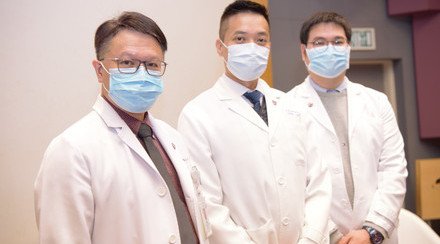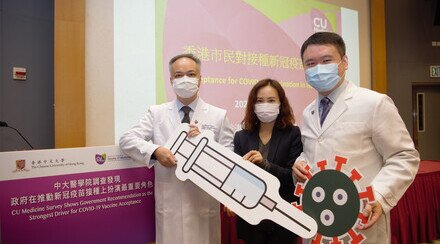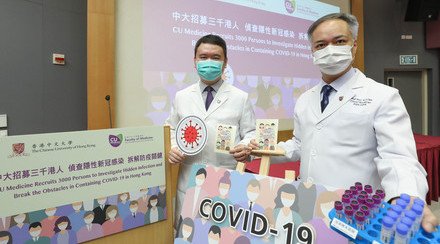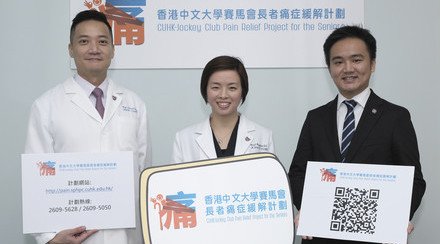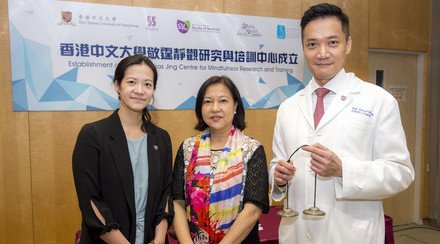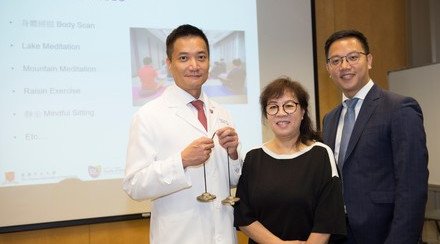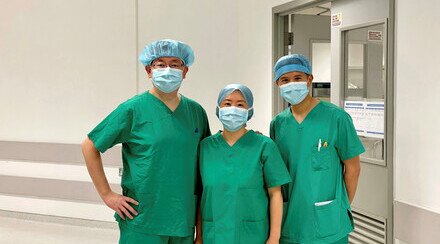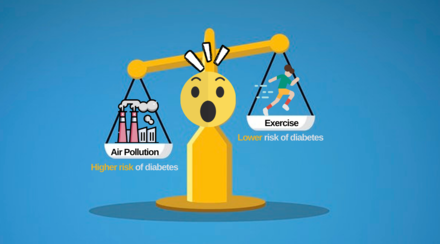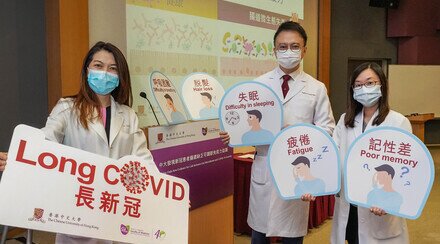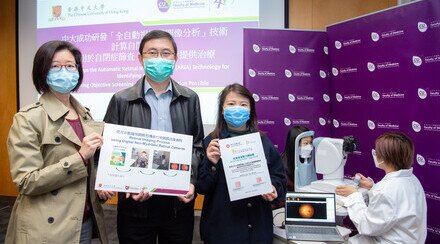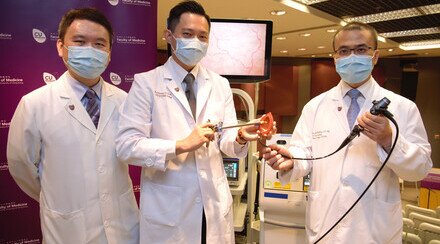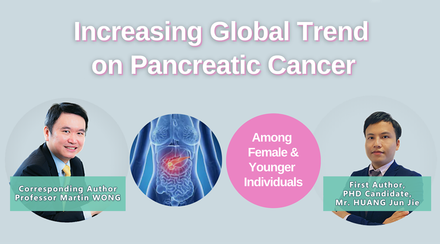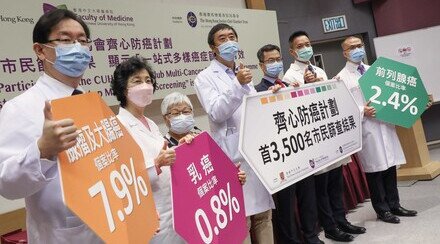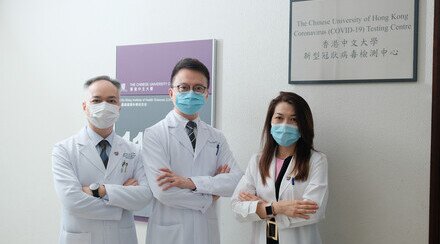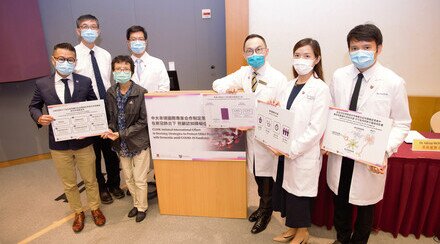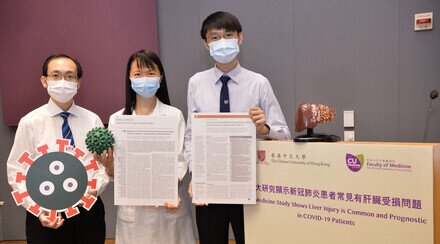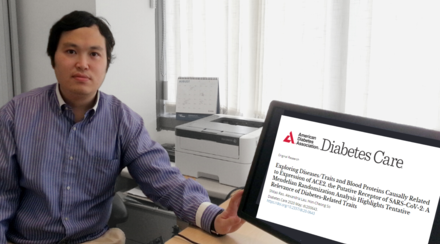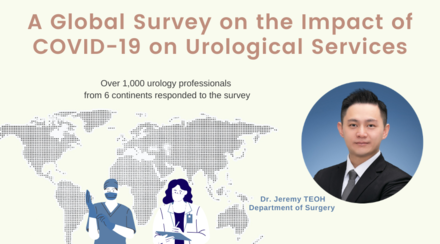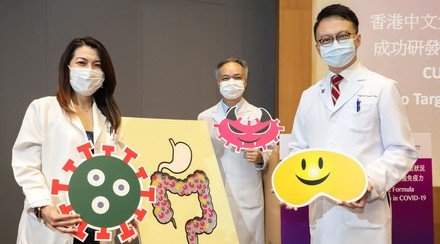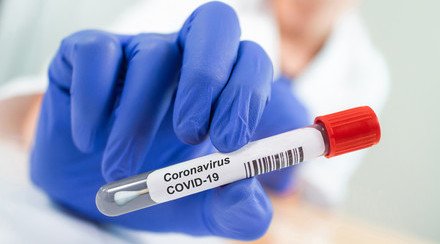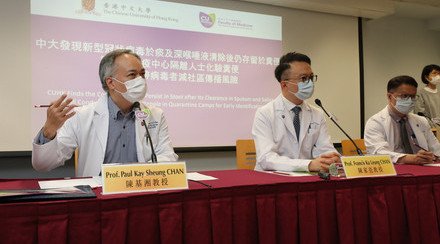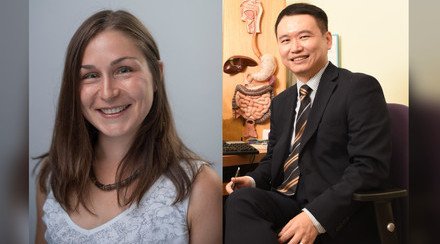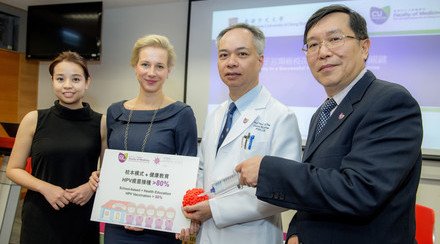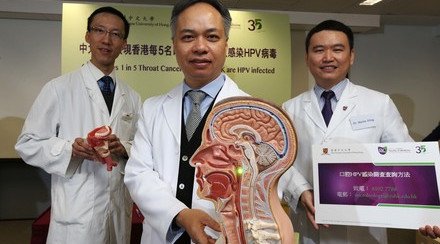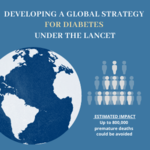CUHK Study Shows Exposure Settings Impact COVID-19 Transmission With Entertainment Setting Showing Propensity for Widespread Dispersion
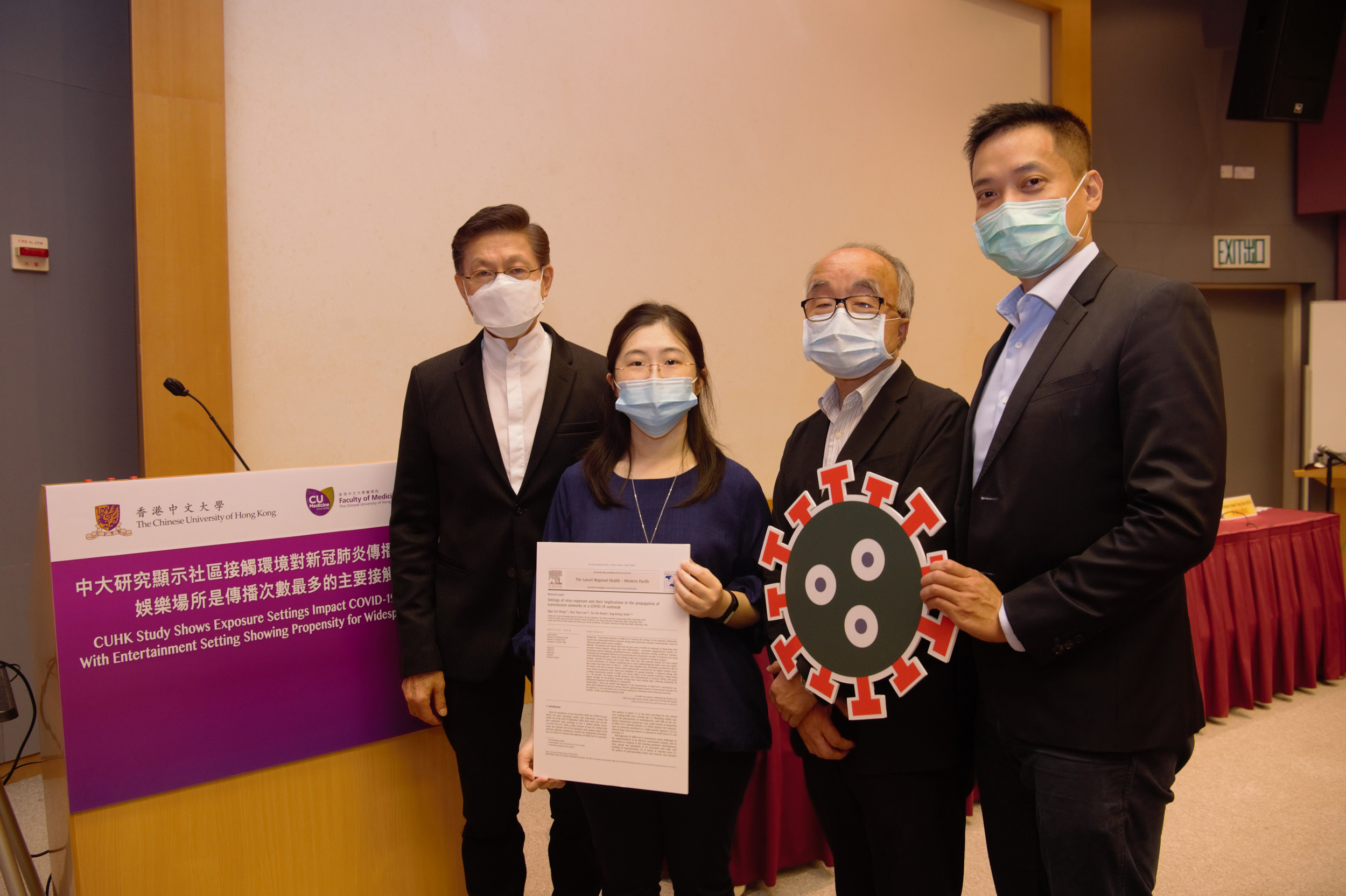
A recent study conducted by CU Medicine showed that other than the infectiousness of the source, the physical setting where the infection was transmitted played a key role in the propagation of the virus in society.
(From left) Prof. Eng-kiong YEOH, Director of the Centre for Health Systems and Policy Research; Prof. Ngai Sze WONG, Research Assistant Professor; Professor Shui Shan LEE, Deputy Director of the Stanley Ho Centre for Emerging Infectious Diseases; and Prof. Samuel WONG, Director of The Jockey Club School of Public Health and Primary Care; Faculty of Medicine, CUHK.
Outbreaks of COVID-19 have resulted in the dissemination of the virus in the community. A study conducted by The Jockey Club School of Public Health and Primary Care of the Faculty of Medicine at The Chinese University of Hong Kong (CU Medicine) showed that other than the infectiousness of the source, the physical setting where the infection was transmitted played a key role in the propagation of the virus in society. In the first two waves of the outbreak in Hong Kong, entertainment venues accounted for the highest number of local primary setting transmissions and were linked with the widest range of subsequent cascades of transmissions settings.
This finding is critical for controlling the spread of COVID-19 in the community. The research team reported their results in the latest issue of Lancet Regional Health – Western Pacific.
Study is first of its kind using network epidemiology to investigate the relationship between different physical settings and their propensity for propagation
Professor Shui Shan LEE, Deputy Director of the Stanley Ho Centre for Emerging Infectious Diseases at CU Medicine, said, “This study is the first of its kind using network epidemiology to investigate the relationship between different physical settings, and the propensity of the virus to propagate from the initial primary setting to subsequent secondary settings of community infections”. The study analysed the outbreak from the time of the first confirmed case reported on 23 January up to 31May 2020 after the social distancing regulation came into force on 28 March this year. The dataset comprised socio-demographic and epidemiological data.
Twelve types of exposure setting were differentiated during wave I/II of the outbreak in Hong Kong – household, neighbourhood, eateries, entertainment (e.g. bar and karaoke), parties, shopping, personalised service (e.g. gymnasium and beauty parlour), workplace, education, worship, healthcare and transport. These settings were differentiated by the number of people in the transmission networks, the duration and frequency of exposure, types of social contacts and whether they were indoor or outdoor environments.
Entertainment accounted for the highest number of primary setting transmissions
During wave I/II, there were a total of 324 local transmission cases which were epidemiologically linked with 123 clusters. A total of 59 clusters were identified at the primary exposure settings where the infection was first detected, while the remaining 64 clusters were where the infection subsequently spread, shown as secondary settings. The infection subsequently propagated through different settings with entertainment accounting for the highest number of primary setting transmissions, involving over 90 confirmed cases. Households accounted for 63% of all clusters with half as primary settings.
Applying social network analytic methodology, the cascades of propagation of cluster transmissions were reconstructed. There were altogether 19 cascades of transmission involving more than one exposure setting. The longest cascade featured a bar as the primary setting, propagating to 30 subsequent settings among seven setting types, spanning 26 days.
The study noted that entertainment was the setting linked with the widest range of subsequent cascades of transmissions settings. On the other hand, linkages of transport, neighbourhood, workplace and eateries were limited without leading to long cascades of transmissions.
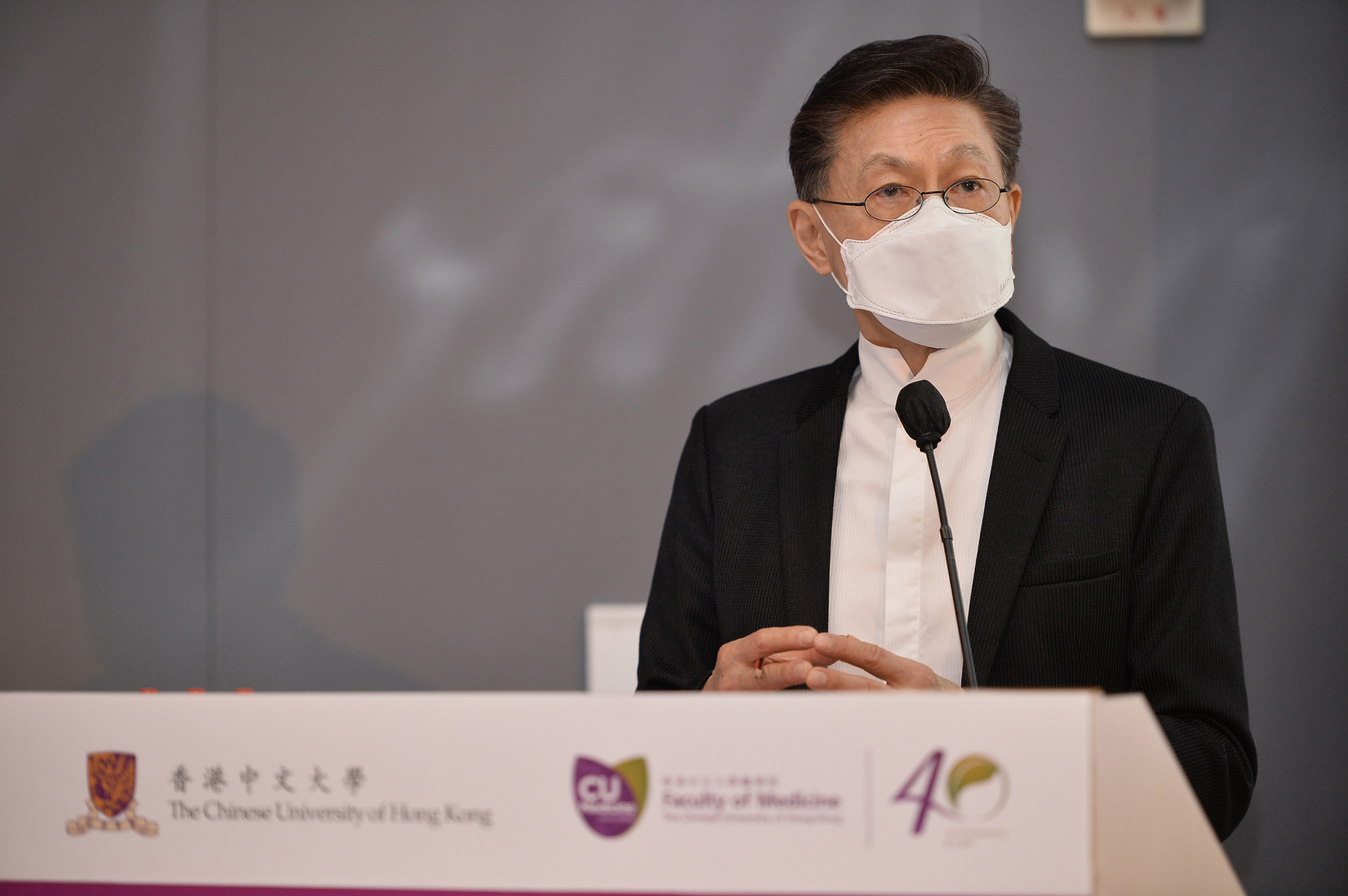
Prof. Eng-Kiong YEOH states that activities of settings implicated in rapid virus dissemination, multiple secondary transmission and longer cascades have the propensity for widespread transmission and dispersion in the community and difficulty in containment. These should be targeted when adjusting intervention strategies like the relaxation of social distancing measures, to build in risk mitigation and management measures to enable optimal public health control of the pandemic.
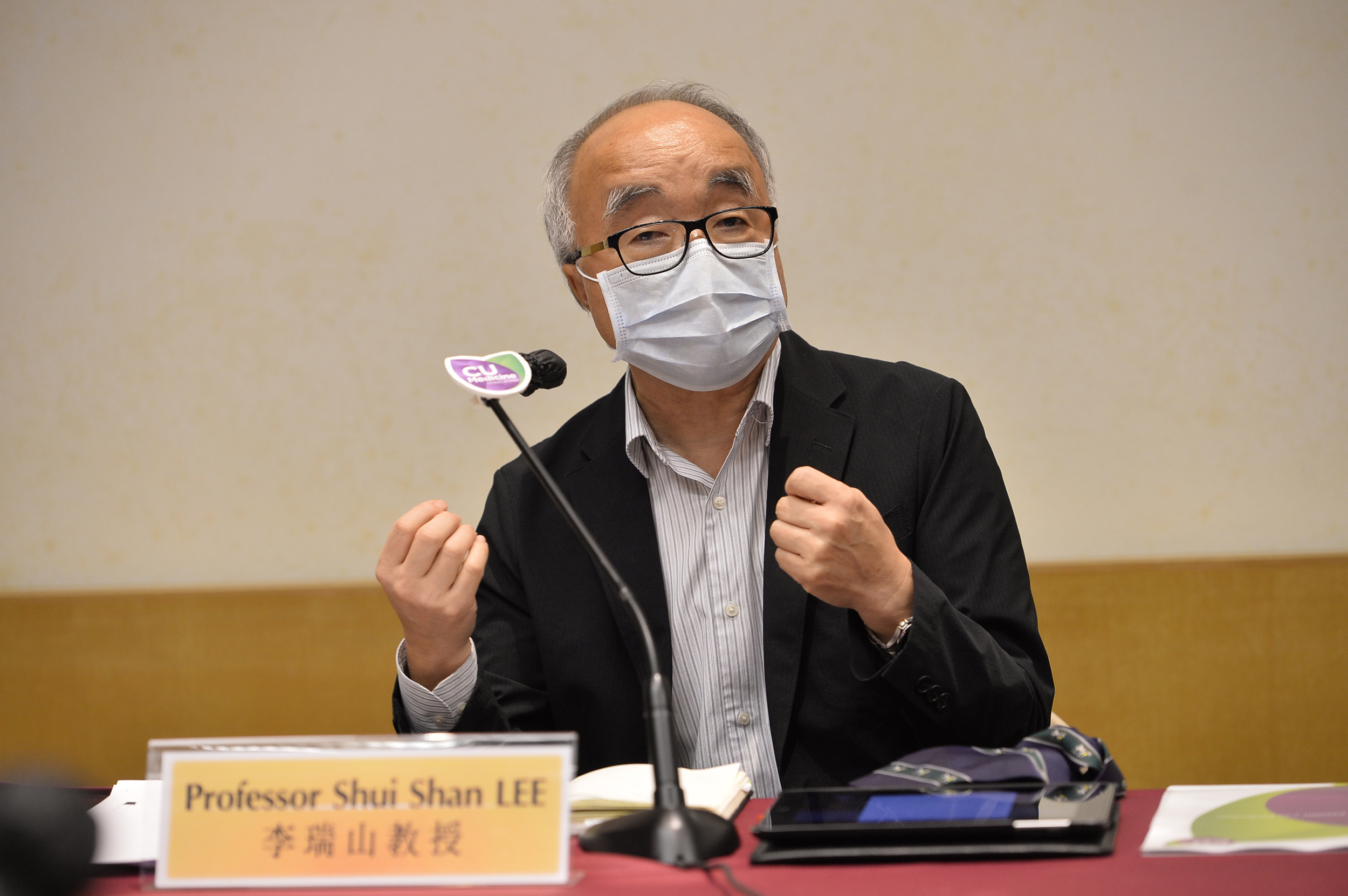
Professor Shui Shan LEE states that the current study is the first of its kind using network epidemiology to investigate the relationship between different physical settings, and the propensity of the virus to propagate from the initial primary setting to subsequent secondary settings of community infections.
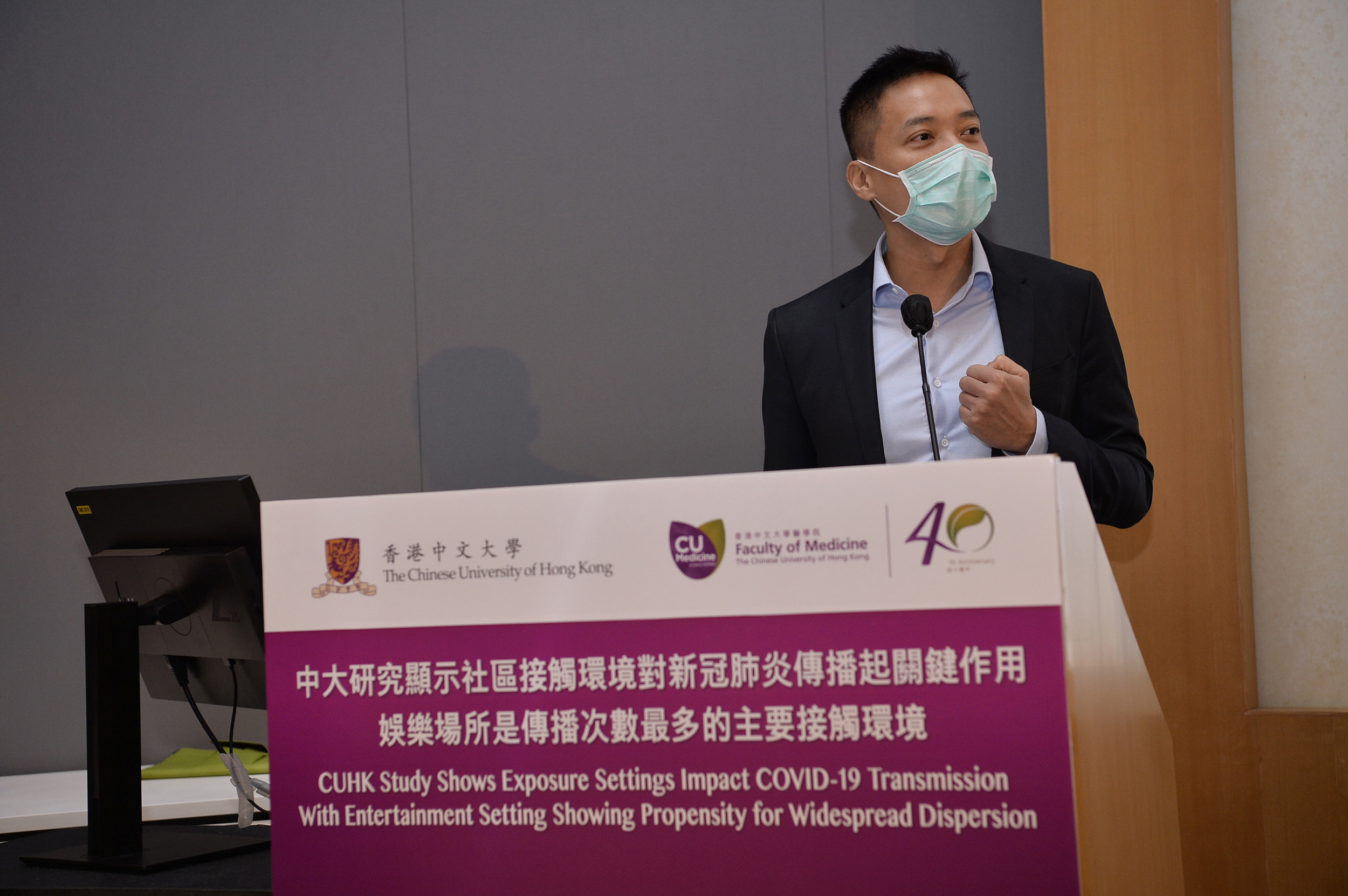
Professor Samuel WONG emphasizes that the relative importance of exposure settings may change with time, and they are influenced by public health intervention strategies. Preliminary results in analysing the pattern of the third wave in Hong Kong showed that virus spread through the entertainment setting did not increase following the enforcement of social distancing regulations, which targeted controls in this setting.
Professor Eng-Kiong YEOH, Director of the Centre for Health Systems and Policy Research at the The Jockey Club School of Public Health and Primary Care at CU Medicine, remarked, “Our study highlighted the importance of adopting an exposure setting specific approach in adjusting public health interventions strategy. In practice, activities of settings implicated in rapid virus dissemination, multiple secondary transmission and longer cascades have the propensity for widespread transmission and dispersion in the community and difficulty in containment. These should be targeted when adjusting intervention strategies like the relaxation of social distancing measures, to build in risk mitigation and management measures to enable optimal public health control of the pandemic.”
Professor Samuel Yeung Shan WONG, Director of The Jockey Club School of Public Health and Primary Care at CU Medicine, emphasized, “The relative importance of exposure settings may change with time, and they are influenced by public health intervention strategies. Preliminary results in analysing the pattern of the third wave in Hong Kong showed that virus spread through the entertainment setting had not increased following the enforcement of social distancing regulations, which targeted controls in this setting.”
The research article “Settings of virus exposure and their implications in the propagation of transmission networks in a COVID-19 outbreak” was published in the latest issue of the Lancet Regional Health – Western Pacific: https://authors.elsevier.com/sd/article/S2666606520300523.



